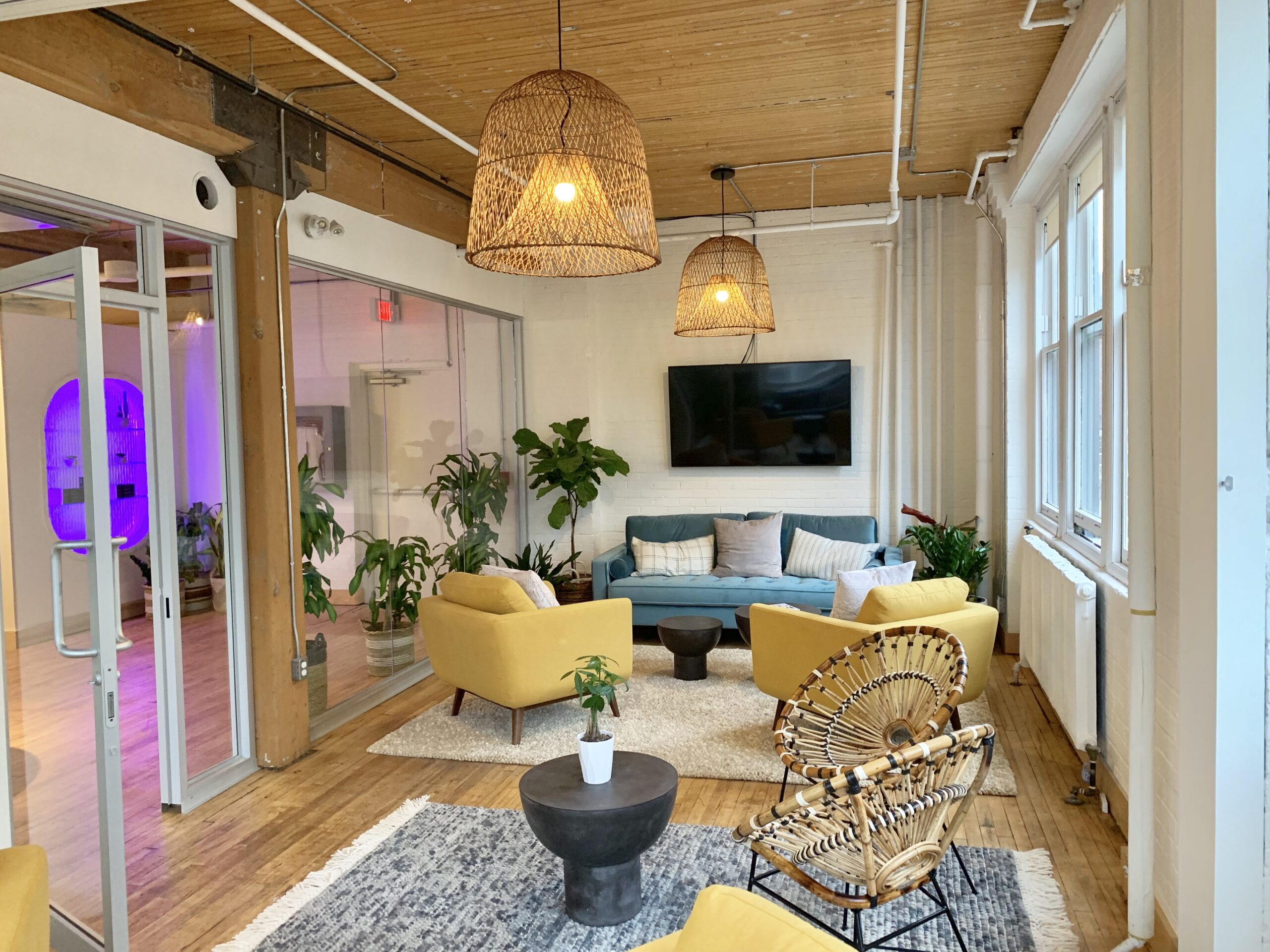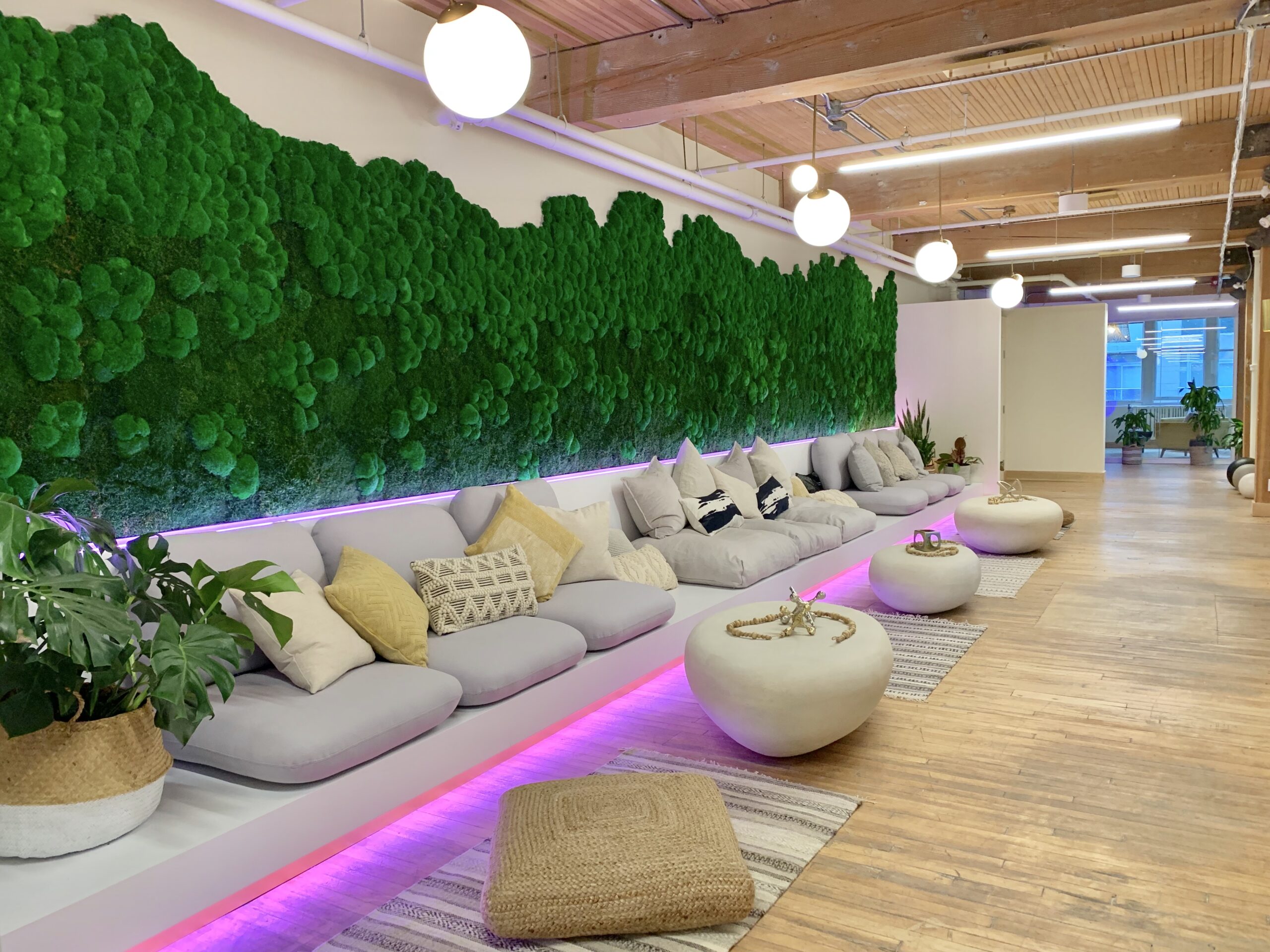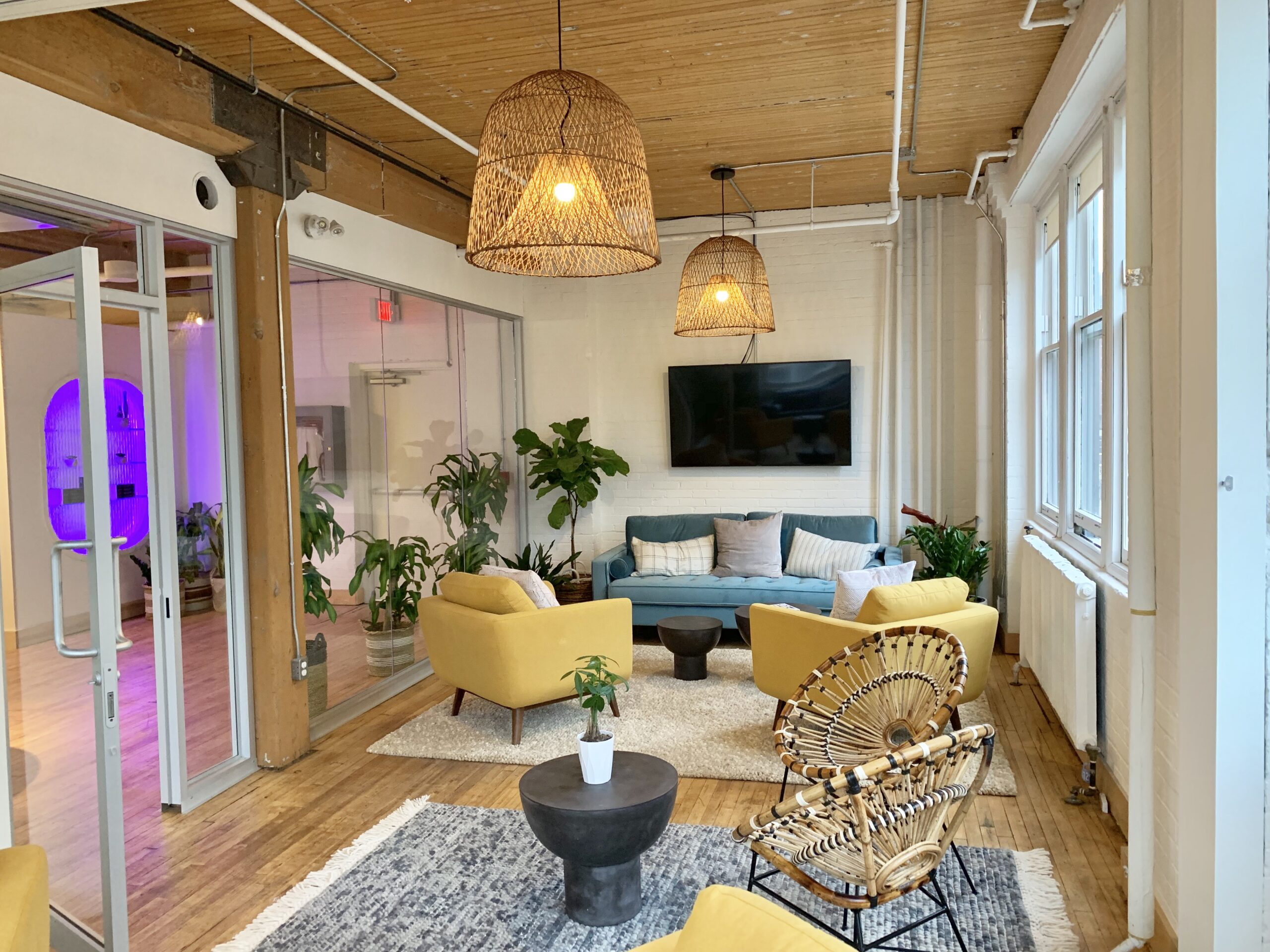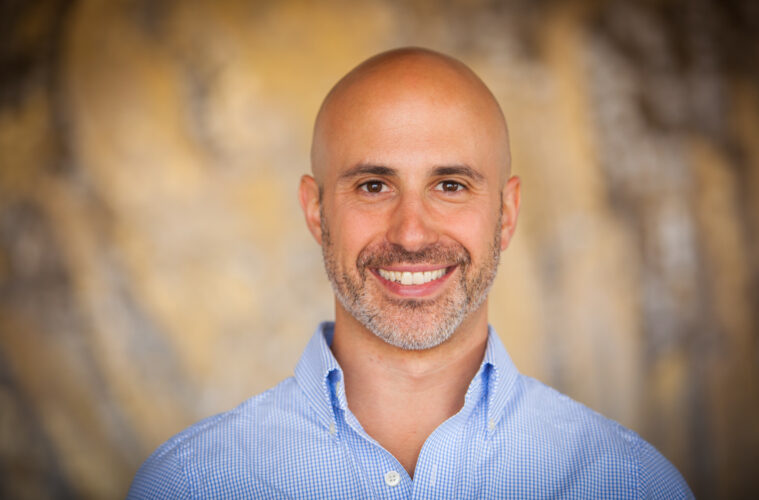As research continues to progress in understanding the connection between psychedelics and mental health, there is one organization that is leading the charge. Field Trip Health is a global leader in the development and delivery of psychedelic therapies illustrating the positive impact that psychedelics can have on the mind.

I spoke with Field Trip Health founder Ronan Levy to learn more about the advancements being made and what the future of psychedelics as therapy may look like. Read on to learn more about how psychedelics work from treating depression, anxiety, PTSD and eating disorders, what the treatment looks like and what the positive long lasting impacts may be.
Can you tell me about what Field Trip Health does?
At Field Trip we are really focused on building the end to end development and delivery of psychedelic therapies; that involves two primary things. The first is building the infrastructure necessary to deliver psychedelic therapies to many people. So psychedelic therapies aren’t something that can be done in a conventional doctor’s office setting, which refers to the mindset and preparation that a person brings into a psychedelic experience, as well as the actual location where that experience takes place that has a significant impact on the therapeutic outcomes. You really need a specialized, safe, inviting and comfortable location to do this kind of medicine and that doesn’t exist right now. So through our Field Trip Health Division, we’re building out those locations across North America and we currently have five locations operating in Toronto, New York, LA, Chicago, and Atlanta with more opening soon.
Then on the other side of the equation, we are developing the next generation of psychedelic drugs. So psilocybin, MDMA and ketamine, which are the molecules that are really leading the current psychedelic Renaissance. There are many wonderful aspects to them. But it doesn’t mean that we can’t enhance the experience in different ways. One of the biggest challenges with psilocybin, in particular, is that it has a very long time frame. So the psychedelic experience is four to six hours, which makes it a big commitment from a time perspective, as well as from a cost perspective. So if you can really deliver the same therapeutic outcomes in a shorter time frame, then you’re really improving access and quality of care. So that’s what we’re focused on on the r&d side.
What are the ways of administering this type of treatment when it’s in a clinic setting?
It depends on which drug you’re talking about. But certainly with ketamine there are different forms of administration, it can be done through an intramuscular injection, which is our preferred route. It can be done through an IV drip as well, whereas psilocybin is typically taken orally. But I think people are really innovating in different forms of delivering the psychedelics, because when you work with IV or intramuscular, the precision of the dosing is much higher than say when you take a tablet, because the metabolism of each person’s body is going to be different, and therefore, it’ll create different outcomes.

When it comes to psychedelics, what are you seeing in terms of how it interacts within the body? Why does it have that therapeutic effect?
There are three things happening when people go through psychedelic therapies. The first is that most psychedelics like ketamine, like MDMA, like psilocybin, like LSD, are very rapid acting antidepressants. Your body gets flooded with serotonin, which makes you feel good. And so there’s an immediate short lift usually within a half hour or 45 minutes where people feel a lot better. Secondly, the way psychedelic therapies are administered is that you’re invited into a comfortable room, you kind of sit in a very comfortable chair, we provide eyeshades and music, and you’re really invited to go inward to experience the psychedelic, and everything that happens in your mind. So it’s a very inward internal facing experience. During that, what often happens is people are able to revisit past experiences and past traumas, and see them from a different perspective. Or they become aware of a previous experience that has affected them in a way that they didn’t realize. So they begin the emotional processing around those in much the same way that cognitive behavioral therapy may help you get to that point, it just happens on a vastly accelerated basis, when you’re using psychedelics. Then the third piece is that following a psychedelic experience, there’s actually a period of neuroplasticity that happens, during which people are more open to effecting change in their lives. So if you think about how children are generally known to be much more adapted, adopting new skills or picking up new languages, it’s because their neural plasticity is much higher than ours is as an adult. When we’re adults our mental models or mental frames are much more rigid and established than in a child. What we see with psychedelics is that psychedelic experiences actually trigger your brain to start growing new neural synapses. So your brain is healing itself on a very physiological level.
But also because you have more flexibility, you’re much more able to adopt habit and outlook changes. So, if part of what’s driving your mental health is that you’re not exercising enough or you’re not eating well, or anything along those lines, which are habits that aren’t always easy to adopt. Following a psychedelic experience following psychedelic therapies, people are actually much more able to adopt these habits and make them part of their lifestyle, which supports the emotional processing and the emotional lift that they receive from the first two effects of psychedelics.
So you mentioned the effects are immediate, but does it have to be ongoing therapy?
It’s really interesting and it depends on the psychedelic. To be quite honest, with ketamine, what we’re seeing is that we offer a course of four to six ketamine treatments supported by therapy. And through that people are often able to report weeks or months of significantly improved depression symptoms. If you look at psilocybin, for example, some of the studies suggest that a single psilocybin assisted therapy session can provide an antidepressant effect for five years or more. When you look at MDMA, either in the clinical trials and the phase two clinical trials that MAPS conducted, which is a nonprofit organization in the US, they found that after three MDMA assisted therapy sessions with the supporting therapy around it, 70% of participants in their phase two trial who had chronic severe PTSD, no longer met the criteria of having PTSD anymore. So you have an almost effective cure. Now, it’s not entirely clear how long those benefits last but they do seem to be quite sustained. So it’s certainly not chronic use or administration, these experiences seem to suggest that people will derive benefits for long periods of time. Does it mean that a single psilocybin assisted therapy session or a single MDMA session will cure you for life? Probably unlikely, but really significant improvements and long term and sustained improvements can be seen.

Would you say Canada is one of the leaders in this field right now?
I think Canada is definitely a leader and there’s a number of reasons for it. But I think that the experience with the growth of the Canadian cannabis industry has really created a framework where a lot of investors are more open minded and interested in alternative modalities. I think the environment, from a people perspective, from a capital perspective, from an infrastructure perspective and from a generally liberal attitude towards drugs perspective, that makes Canada a great home for this emerging psychedelic industry. Certainly, we have some great academic institutions that are supporting a lot of the research that has come out of the US but I think Canada is catching up quite quickly. Canada is definitely at the forefront of taking the research and putting it into a more formalized business.
What other sort of innovations and trends do you think we’ll see in the next couple of years?
I think in a few years there will be a lot more clinics and locations offering psychedelic assisted therapies. I think you’ll see psychedelic assisted therapies become the dominant form of treatment for mental health simply because they are very effective and quite safe. And unlike the experience most people have with conventional treatments for antidepressants, the experience on psychedelics is generally quite positive, and people report them to be very meaningful experiences. Whereas the side effects associated with the conventional antidepressants tend to be dullness, loss of libido, all sorts of really negative negative side effects. So I think you’ll see psychedelics become a very significant form of treatment of mental health. I think you’ll see it evolved in a way that looks a little bit different than conventional medicine.
The research right now tries to pair a psychedelic with a given indication. So ketamine for depression, psilocybin for major depression or to treat resistant depression, MDMA for PTSD. The truth is, most mental health conditions like depression, anxiety, PTSD, are the result of a number of different experiences and comorbidities. So it may make sense for a person who has significant trauma to start on MDMA, but it doesn’t necessarily mean that psilocybin may not also be meaningful and relevant to their therapeutic journey. I think you’ll see the medicalization of it start to blend, where therapists are more open to working with different molecules for different needs in the same person. I think you’ll see a number of new molecules come out addressing some of the limitations associated with the classic psychedelics, like the timeframes, creating deeper experiences or more meaningful experiences.
We’ll also see a lot of innovation of how you really support the therapeutic experience with companies like Wave Paths, which is a UK based company that has developed a tool that designs music in a scientifically rigorous way to support the therapeutic journey. So you’re not just, at the whim of the therapist’s musical taste, there’s actually music designed specifically to support an individual. So I think there’s gonna be a lot of innovation around technology to support these experiences.

As it stands right now can people get referred for this treatment already?
In North America, Ketamine assisted therapy is legal and accessible everywhere. Depending on where you are, your insurance program may or may not cover it. It’s generally not covered by provincial health care in Canada, but some of the costs will typically be picked up by extended benefits programs, which offset some of the cost.
Psilocybin right now is in phase two B trials through FDA, which have been granted breakthrough. It’s expected that those trials will be successfully completed and psilocybin will be available as a treatment option, probably around 2025/2026. MDMA should be approved and available by 2022/2023. So not too far off. And that’s just through the regulatory pathways of drug approval. At the same time, you have states like Oregon, which legalized access to psilocybin Fair Use using the mushroom as opposed to an FDA approved product. So there’s a couple of different paths and Oregon will come online and people will be able to access psilocybin services, I think next year sometime.
What else is Field Trip Health working on?
We have launched an app called Trip, which is designed to support self guided consciousness expanding experiences, whether that’s with meditation or breath work, legal psychedelics or anything along those lines. I think it’s a really powerful tool, because what we did is we took the protocols and design of experience from our locations from our Field Trip Health locations, and really tried to simplify them and synthesize them in a way that makes them accessible to everybody, especially if you’re not in a jurisdiction where we have a Field Trip Health location. It’s an incredibly potent tool. It really guides you through the right experience and the right process to make sure you make the most of any consciousness expanding experiences. So we’re very excited about its potential.


